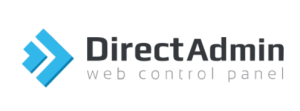Let us take a closer look at how to set up the imunify360 on DirectAdmin services at Bobcares with the support of our DirectAdmin support services at Bobcares.
How to set up imunify360 on Directadmin?

After purchasing the license for the server, which is a simple process, add it to the server under Extra Software – Licenses and then install the agent on the server. This is the first step in the process.
We need the following requirements to set up imunify360 on Directadmin
Set up imunify360 on Directadmin: Configuration
Follow the steps given below for the set up process:
Log in using SSH
We must be logged in as root using SSH. If we don’t know how to connect, please read this post for details.
Setup the server
DirectAdmin includes CSF (Config Server Firewall, a free and sophisticated firewall for most Linux distributions and Linux-based virtual private servers) and LFD.
It is critical to disable LFD; else, sd will produce false positives. To turn off LFD, use the following commands:
sed -i 's|^LF_DAEMON = "1"|LF_DAEMON = "0"|g' /etc/csf/csf.conf
sed -i '/^lfd=/d' /usr/local/directadmin/data/admin/services.status
service directadmin restart
csf -tf
csf -df
csf -ra
This ensures that LFD is deactivated and is not checked by the DirectAdmin service checking. It will also remove LFD’s current IP prohibitions.
Installing the Imunify360 agent
After we have accessed the server run the following command from the command line to register the Imunify360 agent.
wget https://repo.imunify360.cloudlinux.com/defence360/i360deploy.sh -O i360deploy.sh
bash i360deploy.sh
Wait for the script to complete the installation before moving on to the next stage.
Note: It is better that we wipe away the installation file after installation by performing the command:
rm -rf i360deploy.sh
Login to Direct Admin
Imunify360 requires some critical adjustments in Direct Admin in order to function effectively.
The first is to disable brute force parsing in Direct Admin by going to Settings>Server Settings.
Locate the Imunify360 plugin shortcut in the Extra features section of the Direct Admin.
When we first use Imunify360, we will be greeted with a pop-up notice asking us to agree the EULA Agreement.
Configure Imunify360
Imunify360 has its own built-in firewall, which we must correctly set in order to avoid problems.
So let’s begin with third-party integrations. When using CSF, we must activate “3rd Party Integration,” which is accessible via “Imunify360 – Settings – General.”
Whitelist IP in Imunify360
Imunify360 has its own IP firewall, which must be configured with our own IP address(es).
To avoid being locked out, we might try adding IP address to the whitelist.
Kernelcare
Imunify360 includes Kernelcare integration. Kernelcare can be installed at no additional cost. “Imunify360 – Settings- KernelCare” is where we’ll find it.
Check to see if Kernelcare is operational after installation. Go to “Imunify360 – Kernelcare”
CMS and WordPress settings
In the next stages, it is bettee to go through the settings for each service inside Imunify360 and enter the necessary values.
Go to “Imunify360 -> Settings -> General” to begin. Consider the following options:
Hardened PHP
WordPress recommended that all users upgrade their PHP versions, however this is not always practicable. By updating all PHP versions against known vulnerabilities, HardenedPHP protects your customers and servers.
HardenedPHP safeguards PHP versions that are no longer supported. If we want complete control over PHP hardening (and absolute control over the security of your web platform), we should shift to Dedicated or VPSs as soon as feasible.
WAF Settings
Application of CMS-specific WAF Rules = Enabled
Disabled Minimized ModSec Ruleset
WordPress Account Theft Prevention = Enabled
DoS Protection
This function is deactivated and controlled by CSF when CSF is enabled.
General settings
Go through the following:
Automatically scan all modified files = Enabled
Optimize real-time scan = Enabled
Automatically scan any file uploaded using web = Enabled
Automatically scan any file uploaded using FTP = Enabled
Automatically send suspicious and malicious files for analysis = Enabled
Try to restore from backup first = Disabled
Use backups not older than (days) = 90
Default action on detect = Cleanup
Enable RapidScan = Enabled
Binary (ELF) malware detection = Enabled
Malware Database Scanner = Enabled
Backgorund scanning
Run scanning = Weekly
Run on = Sunday
Run at = 3:00 AM
Cleanup
Trim file instead of remove = Enabled
Keep original files for = 14 days
Proactive Defense
Enable blamer = Enabled
PHP Immunity = Enabled
Disabled Rules
This is the next step to set up imunify360 on directadmin. Go to “Imunify360″->”Settings”->”Disabled Rules.”
Imunify360 disables the following rules. In settings, click the “Add” button to add the exception.
214920 modsec "IM360 WAF: Inbound Points|Total Incoming Points; Known for producing a large number of False Positives" all
all 77316844 modsec "Blocks Post SMTP
Features Management
Navigate to “Imunify360 – Settings – Features Management” to enable “Proactive Defense” and “Malware Cleanup” for users.
We can enable both options for users in order to secure their websites and provide them with the possibility to clean up their sites if they become infected.
Notifications
No notice is provided by default. Navigate to “Imunify360 – Settings – Notifications” to adjust the notifications according on the needs.
We created a “Default admin emails” setting and activated the notifications “Real-Time scan: malware detected” and “Script blocked.”
[Need assistance with similar queries? We are here to help]
Conclusion
To sum up we have now seen how to set up imunify360 with DirectAdmin with the support of our tech support team.
PREVENT YOUR SERVER FROM CRASHING!
Never again lose customers to poor server speed! Let us help you.
Our server experts will monitor & maintain your server 24/7 so that it remains lightning fast and secure.




0 Comments